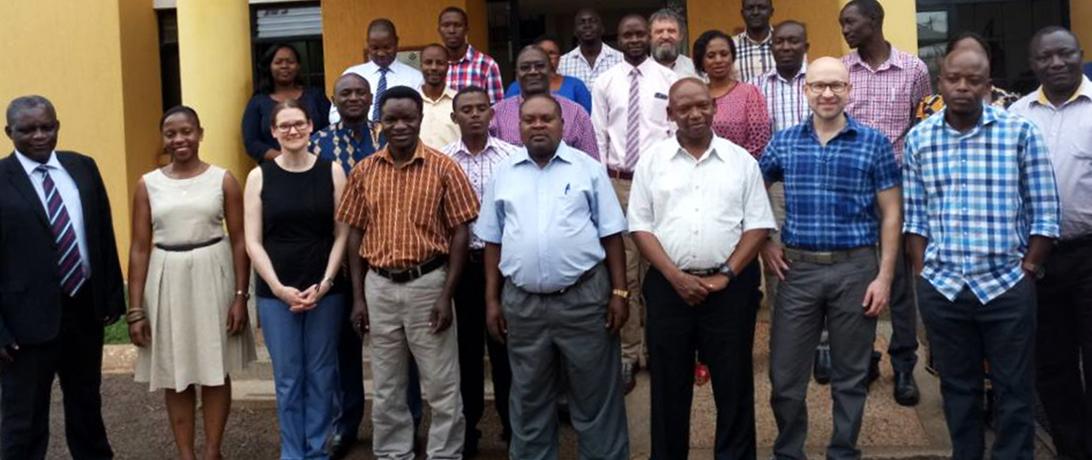
The rapid growth of cage fish farming in Lake Victoria could be a problem or a solution to the lake’s declining stocks of wild fish
Jinja, Uganda – The rapid growth of cage fish farming in Lake Victoria could be a problem or a solution to the lake’s declining stocks of wild fish. Secure Fisheries convened scientists at the Lake Victoria Fisheries Organization (LVFO) for a five-day workshop dedicated to studying this issue. Thirty scientists from the LVFO, National Fisheries Resources Research Institute of Uganda, Kenya Marine and Freshwater Fisheries Institute, Tanzania Fisheries Research Institute, the University of Denver, Salisbury University, and AFORDable Futures came together to share data and plan collaborative approaches to improving knowledge around cage fish farming.
Specialists in fisheries biology, socio-economics, and geography participated in workshops on R for data analysis, GIS, and analysis of survey data. The gathering resulted in a new systems model of cage farming in Lake Victoria that will guide development projects, investment, and fisheries management. The event’s participants concluded that insufficient resources are focused on understanding and conserving fish biodiversity in the lake, typified by hundreds of species of ecologically important cichlid fishes.
Significant discussion also centered on controversial actions by the Ugandan government to deter illegal fishing. Over the past six months, thousands of illegal fishing boats have been burned, resulting in the loss of livelihood for fishers and their communities. However, the legal fishery is already seeing short term increases in fish size and catch. The team is exploring the soundness of this approach to illegal fishing, the long-term risk of conflict it has created, and the ecological tradeoffs for the fishery.
Read more:
Secure Fisheries in Lake Victoria